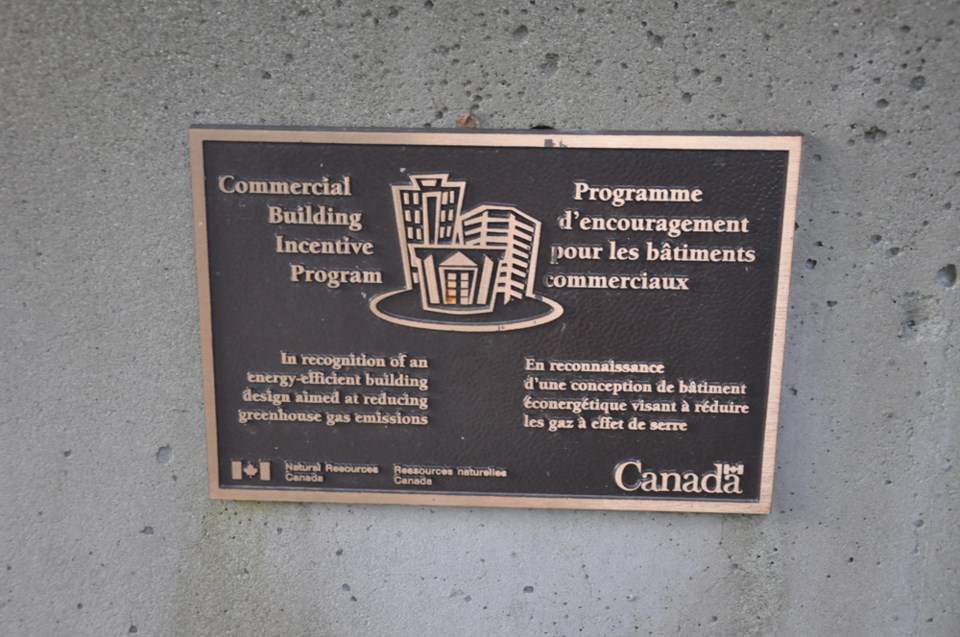Geothermal condos are now a growing trend in Richmond. Using thermal energy from infrastructure built underneath for heating and cooling, these condos are marketed as sustainable, energy efficient and cost effective for residents.
However, residents who are currently living in a geothermal condo in Richmond say the cost they are paying for their geothermal energy is not as cheap as what some developers have marketed it as.
Richmond News reported previously on a geothermal condo under construction on No.3 Road when the project manager said the geothermal operation fee would be included in the strata fee, which is $300 to $450 per month.
“The costs quoted in your article are so low compared to what we have been paying as part of our strata fees, and will continue to pay for another 13 years,” wrote Paula Davies, a resident of Waterstone Pier, in an email to the News.

Waterstone Pier at the southeast corner of Richmond is known as the first geothermal condo in the city. Built around 2006, the three buildings have their own geothermal facility to heat and cool 140 homes.
Jon Sheps was one of the residents to purchase a one-bedroom apartment four years ago, partly because the apartments were geothermal powered.
“The price for the condo was similar to other condos on the market when I purchased it, and I definitely enjoy the heating and air conditioning at home,” said Sheps, who is also a strata council president for one of the buildings.
However, Fortis BC Alternative Energy Services Inc. (FAES), the company that owns and operates the geothermal facility, charges an average of $800 per year for a “geothermal operation fee” for each unit on top of the strata fee, according to Sheps.
Meanwhile, FAES has recently told the residents it will raise the rate for each unit by an average of about $100 per year, to reflect the Consumer Price Index (CPI) rate since 2011, and will continue to raise it according to the rate.
“Even though we are not happy with the rate, we have to pay it for 25 years after the condo was built, according to a contract between the builder and the company that owns the geothermal facility,” said Sheps.
FAES told the News that the fees are based on the costs of ownership, including invested capital, repairs and maintenance, cost of fuels and depreciation of the facility, and was regulated by the British Columbia Utilities Commission, an independent government agency that regulates energy costs.
“[Our] business model is based on owning and operating the thermal energy system over a 20 to 25 year initial term,” Doug Slater, general manager of Business Development for FAES, told the News.
“At the end of the contract, there are generally provisions for renewal or for the Strata to purchase the assets,” he added.
Alvin Cheung, project manager of a geothermal condo project that’s being built in Richmond, said the lock up period is normal to ensure that owners of geothermal facilities can make their money back after installing the facility, which can cost over a million dollars.
Apart from the operation fees, residents also need to pay for changing the geothermal heat pump, which costs from $2,000 to $5,000, according to Sheps, who just spent $4,500 getting a new pump.
“The heat pump needs to be fixed every 10 to 15 years, and sometimes it’s almost the same price to get it fixed compared to getting a new one,” said Sheps.
“Since it’s still a new thing, not many people know how to install the pumps, and there aren’t many options out there. I spent months doing research before getting the pump I wanted.”
Despite the costs and hassle, Sheps still thinks it is a better option to live in a geothermal condo overrall.
With free energy from underground for heating and cooling, Sheps said his hydro bill has been much smaller in his new home compared to before — he used to pay $90 or so per month including heating for a one-bedroom apartment without air conditioning, and now he pays around $40.
“Someone in my building did a calculation and said that if we add up all the fees over the years and costs of replacing a pump, the cost of living in a geothermal condo is almost even to a regular one,” said Sheps.
“But if you look over the long term, geothermal will become cheaper when more people start using it, but the cost of electricity is only going to go up. And after all, it’s green energy and better for the environment.”



